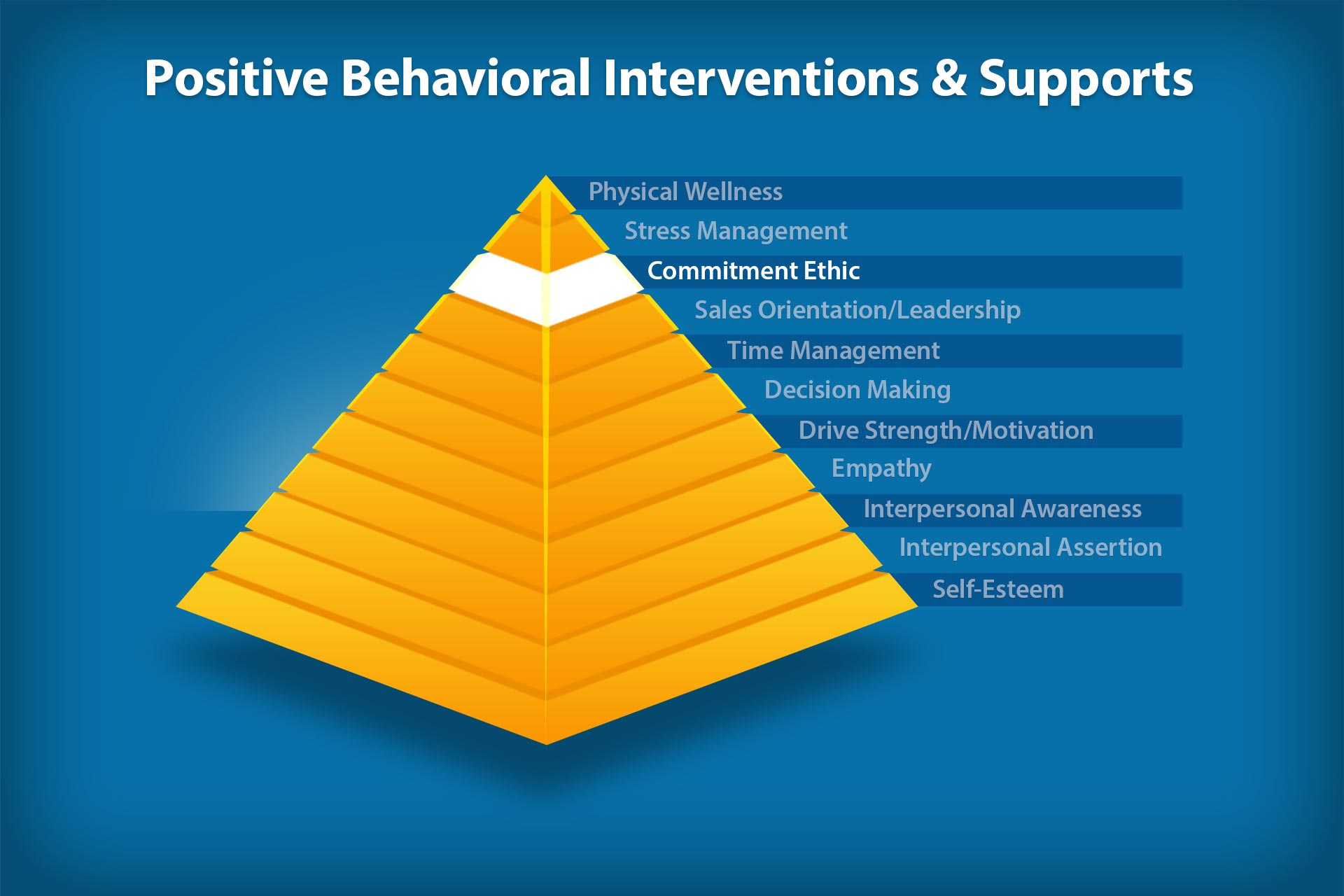
What is Commitment Ethic?
Have you ever heard the phrase, “Whatever it takes” (usually in reference to accomplishing a task or achieving a goal)? That phrase is at the very heart of commitment. The drive to obtain a specific goal by pursuing it until it is achieved is what commitment is all about. Commitment Ethic, then, is a deeply held belief that once you have agreed to do something you must do it until it is finished.
How Commitment Ethic and PBIS are Linked

Commitment Ethic is the ninth step in our Success Profiler’s Personal Skills map pyramid. This is because a strong commitment ethic leads to success. For many educators, it is easy to see why commitment is an important skill in the learning process. By definition, a lack of commitment results in broken promises and failure. Of all the skills on our Personal Skills Map pyramid, commitment ethic is the easiest to draw a connection to PBIS.
Positive Behavioral Interventions and Supports (PBIS) is a term used to describe the proactive approach to establishing the behavioral supports needed for students to achieve social, emotional and academic success. This definition brings together the worlds of academic instruction and behavioral interventions. Without a commitment to improve behavior, it may be difficult for learners to improve their academic success.

In the world of social/emotional learning, commitment ethic is a fairly sophisticated skill to develop. It draws upon all of the previous skills measured in our Personal Skills Map (Steps 1-8). While all eight of the previous skills are important, the skills of drive strength/motivation and time management are the skills most directly related to commitment ethic.
Commitment, Motivation and Time Management
Commitment, motivation and time management are crucial skills for student success. What do these three skills have in common? All three skills are dependent upon the presence of a goal.
Without a goal:
- There is no motivation or desire to achieve
- There is no reason to manage one’s time
- There is nothing to commit to
With a goal there is:
- Motivation to achieve the goal
- A reason to manage one’s time to achieve the goal
- A desire to commit oneself to achieve the goal
But, just knowing about Commitment Ethic isn’t going to translate into positive outcomes for your program. If you really want to see results, you need to apply this information in a way that will help the individuals you work with set goals, manage their emotions, and develop the workplace readiness skills they need to be successful in today’s information economy.
If you need help connecting PBIS to meaningful outcomes, we’ve developed social/emotional learning standards that you can download for FREE. These standards are research-based and organized by stage of life, so you can easily identify which skills to work on with your users or students.
If you’d like to download our soft skills standards you can find them here:
